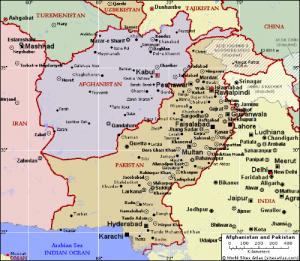 The perfect opening of “The Double Game,” a just-published New Yorker article about the best-laid post-war American plans for Pakistan and India, written by the resolutely excellent Lawrence Wright:
The perfect opening of “The Double Game,” a just-published New Yorker article about the best-laid post-war American plans for Pakistan and India, written by the resolutely excellent Lawrence Wright:
“It’s the end of the Second World War, and the United States is deciding what to do about two immense, poor, densely populated countries in Asia. America chooses one of the countries, becoming its benefactor. Over the decades, it pours billions of dollars into that country’s economy, training and equipping its military and its intelligence services. The stated goal is to create a reliable ally with strong institutions and a modern, vigorous democracy. The other country, meanwhile, is spurned because it forges alliances with America’s enemies.
The country not chosen was India, which ’tilted’” toward the Soviet Union during the Cold War. Pakistan became America’s protégé, firmly supporting its fight to contain Communism. The benefits that Pakistan accrued from this relationship were quickly apparent: in the nineteen-sixties, its economy was an exemplar. India, by contrast, was a byword for basket case. Fifty years then went by. What was the result of this social experiment?
India has become the state that we tried to create in Pakistan. It is a rising economic star, militarily powerful and democratic, and it shares American interests. Pakistan, however, is one of the most anti-American countries in the world, and a covert sponsor of terrorism. Politically and economically, it verges on being a failed state.”
Tags: Lawrence Wright
